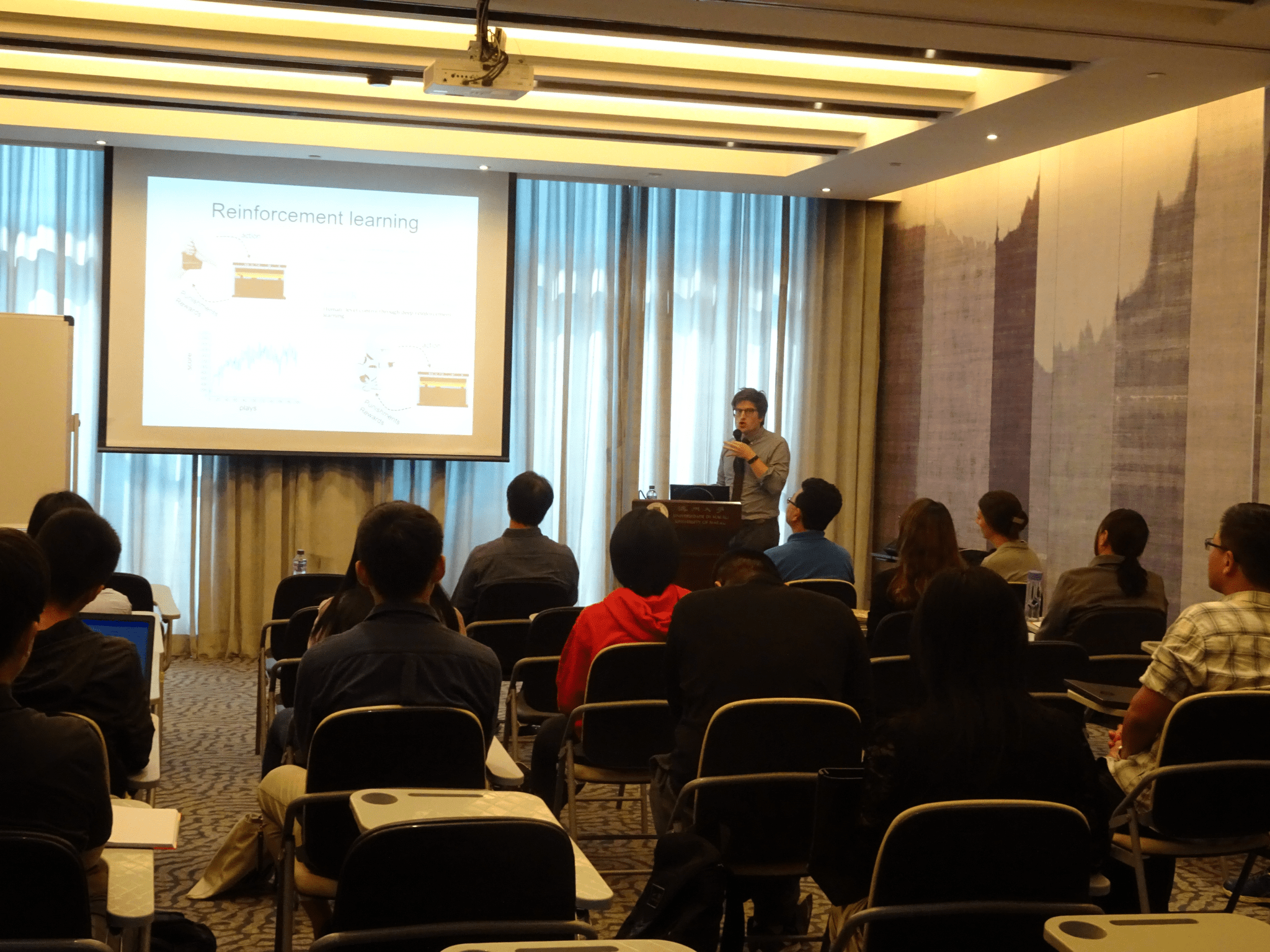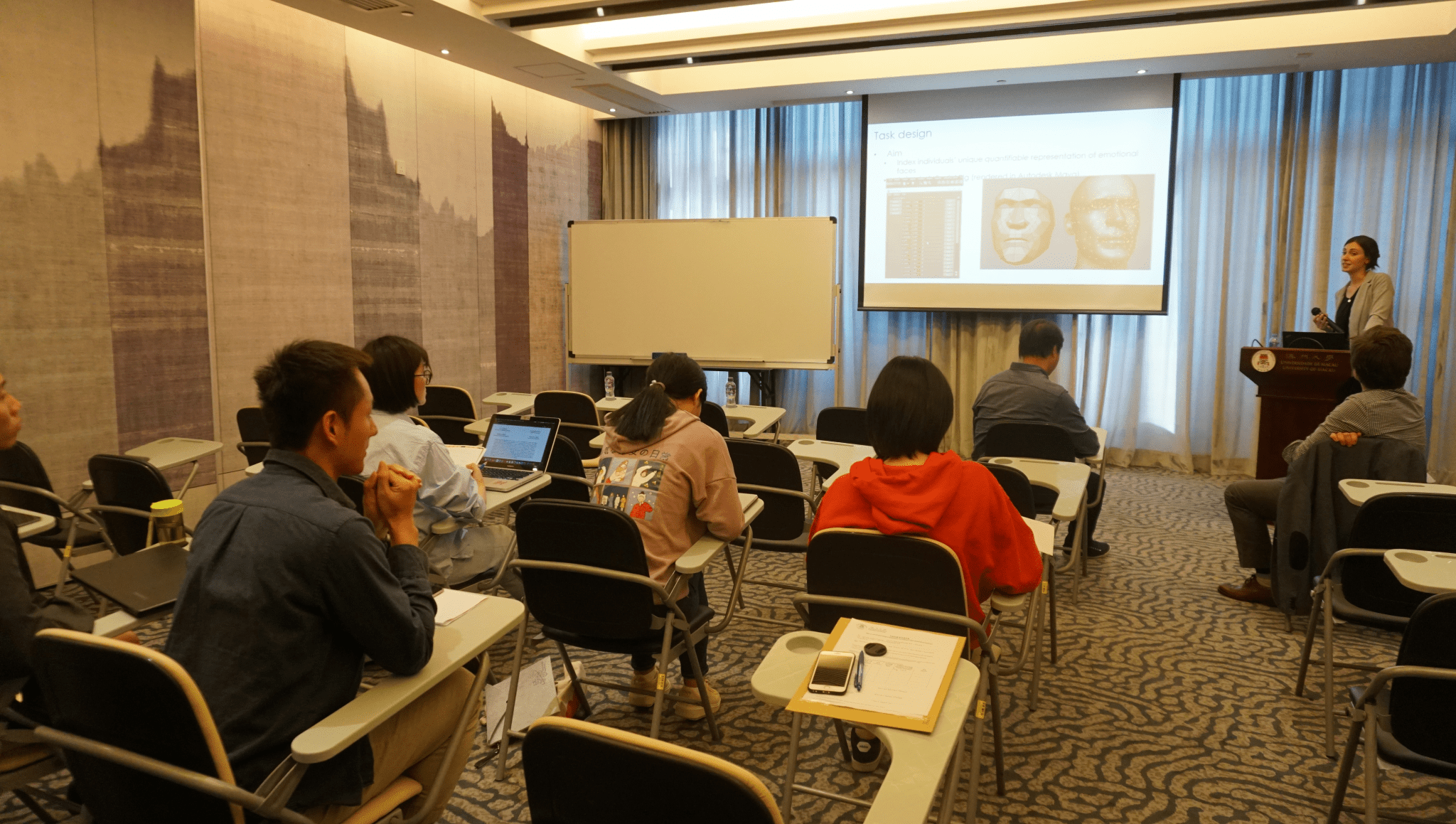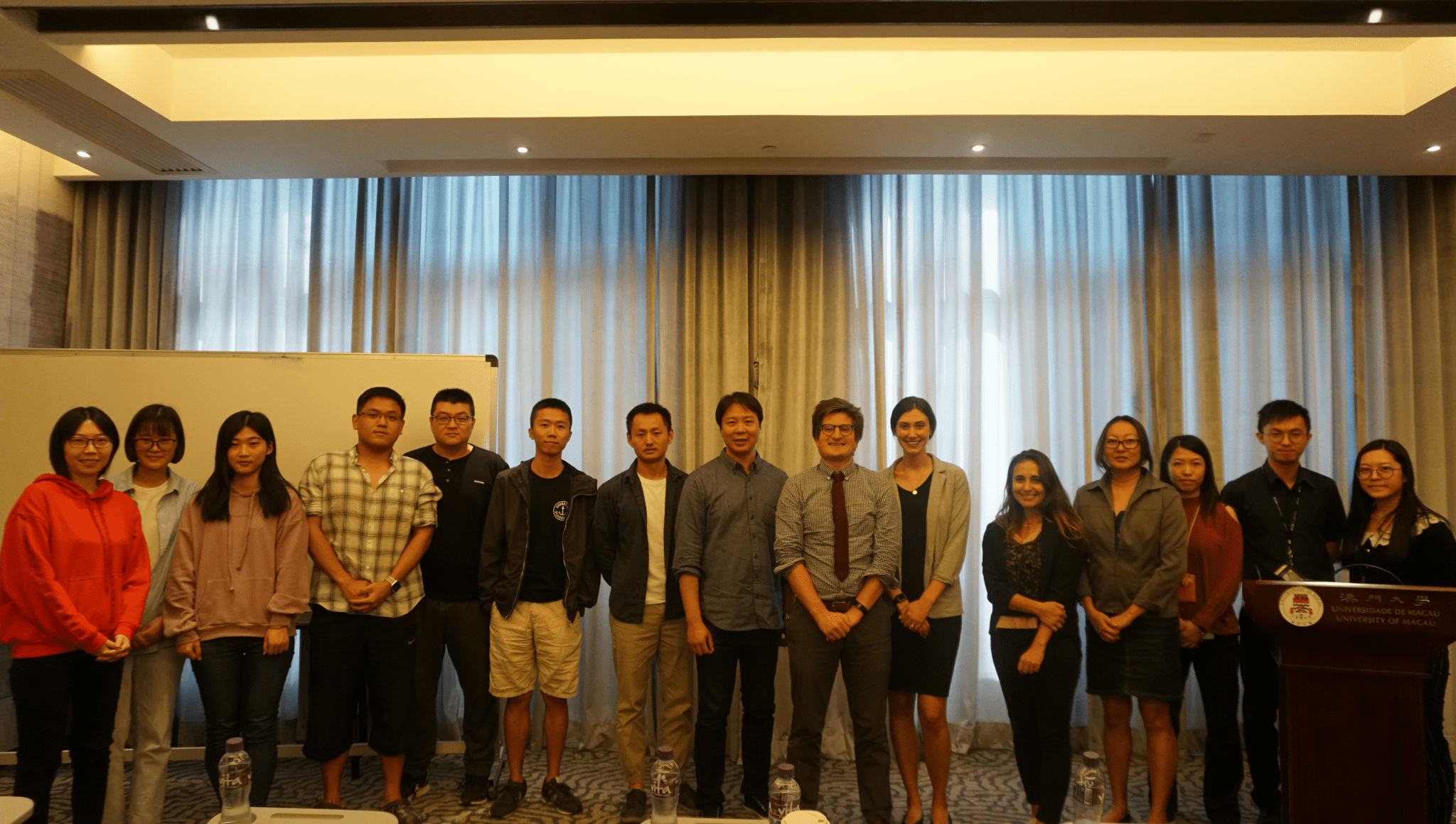Institute of Collaborative Innovation-Centre for Cognitive and Brain Sciences invited Dr. Oliver J Robinson, Group Leader of Neuroscience and Mental Health Group, Institute of Cognitive Neuroscience, UCL, to give a talk entitled ” Using computational psychiatry to better understand changes to learning and decision making in anxiety ” on 11 November 2019. Institute of Collaborative Innovation-Centre for Cognitive and Brain Sciences also invited Dr. Christina Carlisi, Lecturer of Developmental Risk and Resilience Unit, Psychology and Language Sciences, UCL, to give a talk entitled “Using evolutionary algorithms to study individual differences in facial emotion perception ” on the same day.
The background of the seminar “Using computational psychiatry to better understand changes to learning and decision making in anxiety” is that anxiety can be a normal adaptive process, but it can also become a clinical state. However, the understanding of the mechanisms underlying such symptoms is at present limited. At the seminar, Dr. Oliver J Robinson provided an overview of work from the lab demonstrating that changes to the parameters of models of learning and decision making (e.g. reinforcement learning, prospect theory and drift diffusion models) can recapitulate the behavior of both anxious and healthy humans. Dr. Oliver J Robinson argue that using such models in fully translational pipelines from rodents, to groups of humans with mood and anxiety disorders to individual patients may help researchers bridge the brain-behavior gap in psychiatric research and ultimately help us target and develop better treatments for mood and anxiety disorders.
The background of the seminar “Using evolutionary algorithms to study individual differences in facial emotion perception” is that one of the key ways affective information is received is through facial emotional expressions. However, most research involving the processing of facial emotions relies on the use of a fixed stimulus set of predefined standard facial emotional expressions. There are likely discreet differences in the way individuals perceive and interpret these expressions. Affective processing is also implicated in the development of a number of psychiatric difficulties. The emerging field of computational psychiatry has recognized the need for more fine-grained approaches to the way we study individual differences in affective processing. For example, it remains unexplored whether population-level differences in affective biases are due to more nuanced individual variation in emotion perception and how such individual differences relate to resilience to developing mental illness. At the seminar, Dr. Christina Carlisi present recent work developing a computational approach to explore individual differences in people’s characterization of emotions represented by facial expressions. We use an ‘evolutionary algorithm’ to quickly and efficiently evolve facial emotional expressions, achieving an individualized, quantifiable representation of facial emotion for each participant. Ultimately, Dr. Christina Carlisi conclude that a better understanding of differences in how people interpret emotional information may tell us important information about why some people are more vulnerable to developing mental illness and help these individuals earlier in development.
The lecture attracted many scholars and students from the University of Macau. During the Q&A session, the participants exchanged ideas and warmly academic discussions.

Dr. Oliver J Robinson

Dr. Christina Carlisi

Group photo


